Why Are Fans Turning Against Their Favorite Franchises?
We’re now days from the release of Marvel’s next film, Captain Marvel. But some “anti-fans” already claim to despise this prequel. They seem to be despising this film about as much as they (and/or other fans) have despised the Star Wars prequels.
Or the Star Wars postquels (especially Episode VIII: The Last Jedi).
Or the movie Justice League. Marvel Comics. DC Comics. Or the television series Star Trek: Discovery and Doctor Who, The Hobbit film trilogy, the Ghostbusters movies . . .
The trend goes on. And I needn’t even really comment on legitimate reasons fans turn against these franchises. I’ve had a few of those myself.1 But I can move on with my life. Apart from a few web articles, I don’t make videos, crusades, or lengthy essays about my turnabout.
Others do. And even for legitimate gripes, they can’t seem to let it go. They make a cottage industry out of despising that franchise. Former fans verbally thrash the franchise’s (and its creators’) reputation with the fervor of a jilted lover.
Some of these feelings are understandable. For example, fans may perceive that a story’s creators are literally telling them, “You’re not welcome here.” Some controversies about Captain Marvel actor Brie Larson are grounded in this. Fans interpreted (rightly or wrongly) some of her comments as meaning, “Your kind are not welcome here.” In the future, I may explore more about these fan feelings.
But for these next three reasons, I think anti-fan attitudes reveal a lot about human nature and idolatry.
1. Fans may not view their favorite stories in perspective.
I don’t like saying “it’s just a movie” or “it’s just a show.” Such a slogan disregards the power of stories for good, evil, or both. The slogan also ignores the real feelings of their fans, and the hard work that humans, God’s image-bearers, put into stories.
But what about people who first embrace story franchises, then despise them to the point of making reams of videos or essays about how terrible they are now?
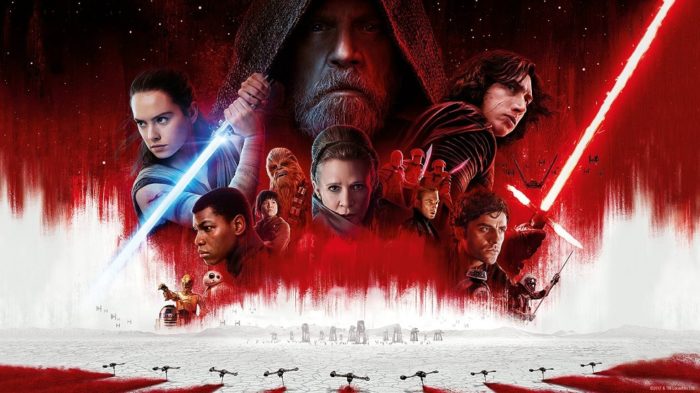
For the record, I’ve seen The Last Jedi only once, and I only felt so-so about it. I suppose this means I also did not receive the film well.
At that point I would say, “Move on. It’s just a movie/show/whatever.”
Only in a prosperous, first-world society would anti-fans have enough spare time to “review bomb” a movie they haven’t even seen. Or to spend hours arguing with fans or the just-plain-indifferent viewers about whether certain directors secretly “hate” heroes like Superman or Luke Skywalker.
No matter your political or religious perspective (but I repeat myself), the world has greater, more terrible issues. Like abortion. Or whatever degree of racism you think still exists. Or injustice, poverty, and the $22 trillion U.S. national debt.
Even in a secular worldview, anti-fans need to get some perspective. Fast.
2. Fans may commit the sin of ‘gluttony of delicacy.’
Fantasy fans have never had it so good as we do in the early 21st century.
Every top film is space opera, fantasy, superhero, or some other fantastical genre. Dozens of TV shows focus on every obscure figure who ever peeped out of a comic panel. And for some heroes, if you don’t like a particular interpretation, you can just wait a few years for the inevitable reboot!2
No one in a starving nation goes to Yelp to review-bomb the food relief truck.
The fact that many fans feel the luxury of criticizing—with personal ire—any recent franchise installment is simply a side effect of this cultural luxury. Whereas a fan from the 1990s and earlier, who is starving for a new Star Wars movie or superhero adaptation, will more than likely take whatever he can get and appreciate it.
Some of that is a natural side effect. I wouldn’t call that sinful. Why not advocate for the best, or constructively criticize when creators simply reheat the old recipe?
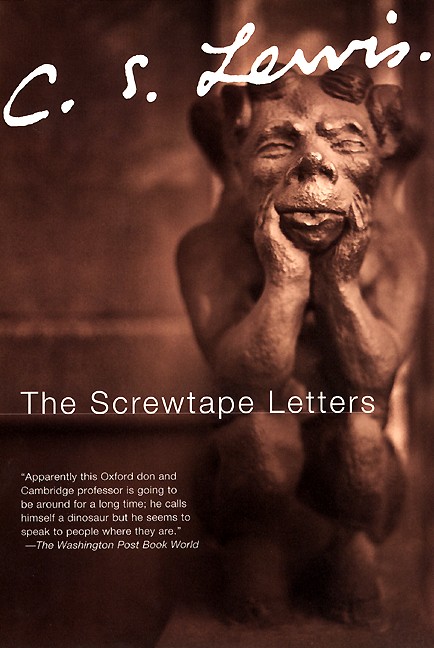 This legitimate criticism, however, can quickly turn into a kind of gluttony. As C. S. Lewis once explained, it’s a kind of gluttony that doesn’t look like gluttony. Speaking through his satirical demon Screwtape, Lewis called this a “gluttony of delicacy.” Just switch out a few words—I’ll show them in boldface—and Lewis’s wisdom applies:
This legitimate criticism, however, can quickly turn into a kind of gluttony. As C. S. Lewis once explained, it’s a kind of gluttony that doesn’t look like gluttony. Speaking through his satirical demon Screwtape, Lewis called this a “gluttony of delicacy.” Just switch out a few words—I’ll show them in boldface—and Lewis’s wisdom applies:
He is a positive terror to storytellers and other fans. He is always turning from what has been offered him to say with a demure little sigh and a smile, “Oh please, please . . . all I want is a story that makes me happy, completely original but not too subversive, and the teeniest weeniest bit of nostalgia.”
You see? Because what he wants is more creative and less popular-level than what has been set before him, he never recognises as gluttony his determination to get what he wants, however troublesome it may be to others.
At the very moment of indulging his appetite he believes that he is practising temperance. . . .
The anti-fan is in what may be called the “All-I-want” state of mind.
All he wants is a movie properly made, or a TV show properly adapted, or a novel properly written. But he never finds any creative or any friend who can do these simple things “properly”—because his “properly” conceals an insatiable demand for the exact, and almost impossible, palatal pleasures which he imagines he remembers from the past; a past described by him as “the days when you could get really great movies” but known to us as the days when his senses were more easily pleased and he had pleasures of other kinds which made him less dependent on those of the popular culture.3
3. Fans may idolize stories, and idols never satisfy.
Let us never assume that discerning Christians no longer risk twisting stories into idols.
Absolutely Christians can make these stories into idols. How much more, then, can non-Christian people fall even deeper into the trap of expecting more from a fantasy story than any director or writer can possibly hope to give us?
This is plain idolatry: investing a human gift, a human creation of images, with such hope and expectation that the instant it disappoints you, you turn in rage against it.
Like David’s son, Amnon, who “loved” his sister Tamar, tried to seduce her, and then when she righteously refused, “hated her with a very great hatred.”4
Or like anyone who lusts after a pleasure rather than loving it for a greater purpose.
Only God, the prime source of all joy and goodness, of all creativity and wonder and imagination, never “runs out” of these gifts. He is the definition and embodiment of these gifts. Apart from him, to quote (and slightly subvert) the old hymn’s lyric, “the things of Earth will grow strangely dim.” But in light of his glorious grace, Earth’s good things can “grow strangely bright,” as author Joe Rigney suggests.5
Toward a better fan response based in godly joy
Understand, I’ve felt the sting of disappointment with a fantasy franchise
Once or twice I’ve even wondered how I could ever go on now that XYZ is getting rebooted, or taken in a different direction, or ruined forever.
Then, honestly, I have to laugh at myself. What nonsense!
I don’t want to become this kind of person. I’d rather become a happy person.
I don’t want to view any human story as the be-all-end-all of my life. Instead, I want to see human stories in the perspective of real life now, and even more so in the eternal afterworld that Jesus will renew here on Earth.
I don’t want to become a delicacy-glutton, trying to subsist on memories of times I could delight in new stories. I’d rather become open to new experiences and interpretations of stories, for the sake of respecting the imaginations of other people, and maybe even discovering new flavors to enjoy.
And I definitely don’t want to turn any story into an idol to worship. If I did, I would not only lose ultimate joy in God, but I also lose even the lesser pleasure I could have enjoyed in the gift. Instead, I’d rather worship God, the source of all these humans’ creative gifts, and make him my greatest joy. That way, if all these other stories turn to dust, I’ll still have greatest joy. But if these stories last—and change and reboot or even fail—I’ll have a far greater chance of enjoying these gifts.
- I myself oppose religious-based reasons to make a franchise “woke,” at the expense of story. Star Trek: Discovery’s first season lost me with pandering “female power” moments and plain porn. And I needn’t rehash my disinterest in the one-regeneration-too-far that is Doctor Who’s eleventh season. ↩
- Unlike some fans, I don’t automatically scoff at the idea of rebooting, say, Batman, Superman, or Spider-Man. With some exceptions, each new director’s and/or actor’s version of the hero offers new strengths. ↩
- C. S. Lewis, The Screwtape Letters, chapter 17. I’ve added some new paragraph breaks. I also added boldface to indicate pronouns and other terms I’ve inserted for relevance. ↩
- 2 Samuel 13:15. ↩
- See Joe Rigney, The Things of Earth: Treasuring God By Enjoying His Gifts, Crossway Publishers, 2015. Apart from some references to sports games, Rigney does not apply his thesis to popular cultural works, such as movies and TV shows. Whereas I suggest that all Rigney’s applications of Christian joy, to human cultural gifts like food and vacations, are just a hop-skip-and-a-jump away from popular culture. ↩
































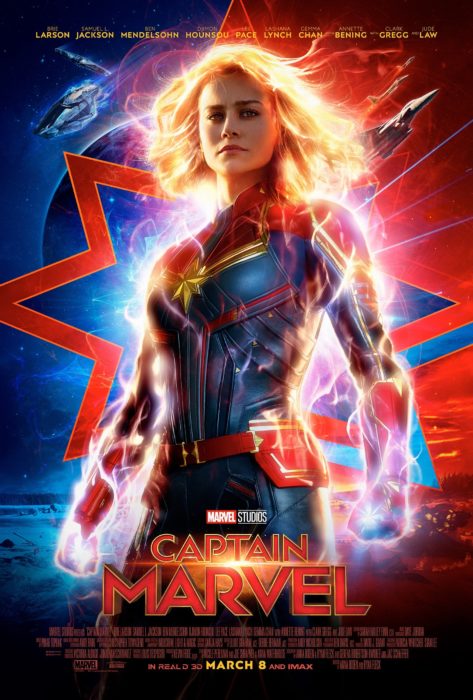

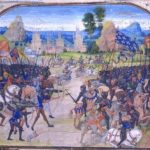

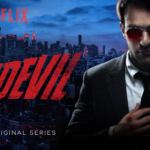
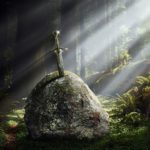


When people turn on a fandom, or even the authors of a fandom, one of my inclinations is to say that the fans never actually loved the author/fandom in the first place. It’s more like they liked it a lot. Maybe they adored it and gave it an important place in their life, but that’s it. They invent an image of what the stories/authors need to be, and they get attached to that image, rather than the actual thing.
And that’s why people turn on a dime and go off the deep end. Let’s take peoples’ reactions to authors, for instance. When the authors say they have to take a break for health reasons or whatnot, a lot of people will chime in and say ‘Take your time, author, your health comes first’. But a lot of people really won’t be fair to the author when some circumstance doesn’t line up with something in the fans’ heads.
Some fans will be really upset if the next story doesn’t come out fast enough, or the couples they ship don’t become canon. Or they’ll say that they won’t sell fan works for real money/pirate books if the author is poor, but that they won’t hesitate to do so if the author is rich. Or they’ll feel resentful or even go on the attack if an author has different political views than them.
So, fans will claim to care about/love an author, but it’s really more like ‘I think they’re really cool, and won’t resent/disrespect them so long as they meet my expectations’
But the reality is that high quality stories take a lot of time and effort, especially for indies, so maybe they can’t finish the next book as fast as fans would like. And maybe if fans are allowed to ship whatever characters they like, that should go doubly for the authors that own their characters in the first place and might have a logical reason for canonizing certain couples. And when it comes to money, a person’s rights should be respected no matter how much money they make. And pirating works can have big repurcussions, especially for traditionally published works.
As for politics, it’s perfectly fine to disagree with an author or even feel a bit upset at them, but authors are individuals with their own lives. They are under no obligation to be the mouthpiece for anyone’s views and expectations. Calmly calling an author out would make sense in some cases, but some people take it too far.
It’s sort of the same with the stories themselves. We don’t own them. Of course they’re going to do things we dislike now and then. It’s fine to talk about it and dislike it, but maybe be a little more reasonable about it?
I don’t like the newer Star Wars movies, for instance. The original three were fine, and I’m one of those rare, weird creatures that actually likes the prequels. But the new films Disney’s making…were about what I was expecting. I don’t feel invested in the story and characters. They just weren’t interesting. It just feels like Disney is cranking them out to make money.
I don’t go on long, hateful rants about it, though. I might write about why I dislike it and present ideas that might improve it, but I don’t exactly think it’s Disney’s duty to adhere to them.
I sort of feel the same about the Boruto series, though I feel more invested in that whole issue. But, most of my critique of the series will be through analyzing it in future blog posts and maybe a few fanfictions that approach the story in a way that makes more sense to me.
Honestly, I never was the sort of person to completely trash an author or series, but growing up I was still a bit of a jerk. People would make comments online like ‘Ha ha, the recent Naruto Shippuden plot lines are Kishimoto’s brain diarrhea’. I wouldn’t say anything like that, but I would silently agree, since I was frustrated at some of the lower quality parts of the story. Other times, I would hear about authors like Rowling having a hard time keeping track of their story’s world building elements.
I would tell myself that I would make sure every part of my stories were high quality, and thought that I could remember all my world building and ensure that there were never any obvious inconsistencies. Over the last few years, though, I realized the sheer amount of work that goes into making media.
If someone does a lot of intensive world building over many years, they aren’t going to remember every detail of every character at all times. As far as Kishimoto goes, he might not write absolute perfection all the time, but so much of Naruto/Naruto Shippuden is very brilliant. He deserves a lot of respect for the years he’s spent world building, characterizing, writing and drawing a series that has spoken to so many people(and quite possibly under stressful deadlines). The fact that a sorta cruddy sequel like Boruto exists only attests to that. Boruto wouldn’t exist if people didn’t love the initial Naruto series.
Going straight into the weeds here, but since you’ve posted some about Myers-Briggs, have you looked into the Big 5/Ocean personality test? Psychology types seem to like it more than Myers-Briggs because your Myers-Briggs type usually fluctuates depending on your mood or any number of influences. I only end up INTJ most consistently, but I’ve also gotten ISTJ and INTP. On the flip side, Myers-Briggs is useful to help writers get into the thoughts of a different personality type than they are precisely because it does try to predict reactions.
Anyway, the OCEAN thing is an acronym is about a person’s level of Openness, Conscientiousness, Extraversion, Agreeableness, and Neuroticism. I was surprised that I scored pretty highly on Openness, but I do like new ideas and new experiences (but not new people, because I score about negative billionty on Extraversion).
Some of your speech patterns do strike me as INTJ sometimes XD. Of course I don’t have a super great grasp on the other types yet. I know those other types you mentioned can talk a bit similarly at times. One thing that seems to separate INTJs from a lot of others is the sheer amount of drive and independence INTJs have, so that’s been a useful factor for me to keep in mind when it comes to typing.
I’ll have to look into the OCEAN thing, but as far as Myers Briggs goes, I’ve liked a lot of C S Joseph’s discussions on the matter. It’s a little hard to decipher some of his stuff, especially since he might relate certain behavior to terms a person might not initially use to describe herself(he described INTJs as having ‘performance anxiety’, for instance. That threw me off at first because I don’t think of myself as having that. But I realized that he was actually talking about things like INTJ’s social awkwardness and not wanting to embarrass themselves or upset people, which is definitely true for me. Not all INTJs have those traits on the same level, though.)
But, C S Joseph discusses Myers Briggs in terms of underlying cognitive functions, which seems far more reliable than the tests, once people really start to understand how the functions/terminology works. If you’re interested, maybe look through all his videos pertaining to INTJs, ISTJs and INTPs and see if anything strikes a cord with you? He also has videos discussing the cognitive functions he uses for typing.
As far as writing…the fun part for me is that I’m realizing how many of my characters are very INTJ ish in some respect or another. Some of them aren’t, but INTJs are good from the standpoint of being proactive characters that can actually fuel the plot. I want more personality variety in my stories, though, so I’m diligently studying C S Joseph’s stuff, and am quickly learning that INTJs are bizarrely different than everyone else. Which kinda explains a lot of my childhood experiences…
Excellent, spot-on article! I thought the reworking of Lewis’ text was particularly pointed and effective.
My mom wants to see the Disney reboot of Aladdin. I think it’s a waste of time. She knows not to invite me to watch it on the big screen. I hope she enjoys the experience. Woo hoo! Everybody’s happy.
To many fans, changing the sex of a pre-existing character is simply another exercise in ‘shrink it and pink it’: in order to increase sales, an item originally made for and sold to men would be made in a smaller size and made available in pastel colors and marketed as ‘for women’.
The original Captain Marvel wasn’t a woman. Instead of just ‘shinking and pinking’ Captain Marvel and other existing male characters in an attempt to add women to existing characters’ fan bases and generate interest through controversy. why not create original female characters?
I don’t find characters who’ve merely had their sex changed symbols of female empowerment: in fact, I see them as the reverse — as proof that the PTB don’t think female characters could gain an audience large enough to be worth the investment, and that female customers aren’t worth the effort to provide anything but a retread of a male character.
I’m waiting for the day that Jean Valjean is re-purposed. Or Quasimodo. Or Sydney Carton. I won’t be arguing about them online any more than I aired my opinion of complaints that Little Women didn’t get an armload of awards: I simply won’t be spending my money on the books or the DVDs.
FD: Little Women has been redone five times, and has been more ham-handedly ‘feminized’ with each iteration: the March Girls were not twenty-first century feminists, as anyone who’s actually troubled to read the books would know. Altering original characters from books written in another era so that they would appear to be right at home in our own doesn’t, in my opinion, merit an award for creativity, even if it is done by a team of women. We have excellent female-centered, female-authored fiction being written now that could be made into movies without the characters having to be altered until they were nearly unrecognizable.